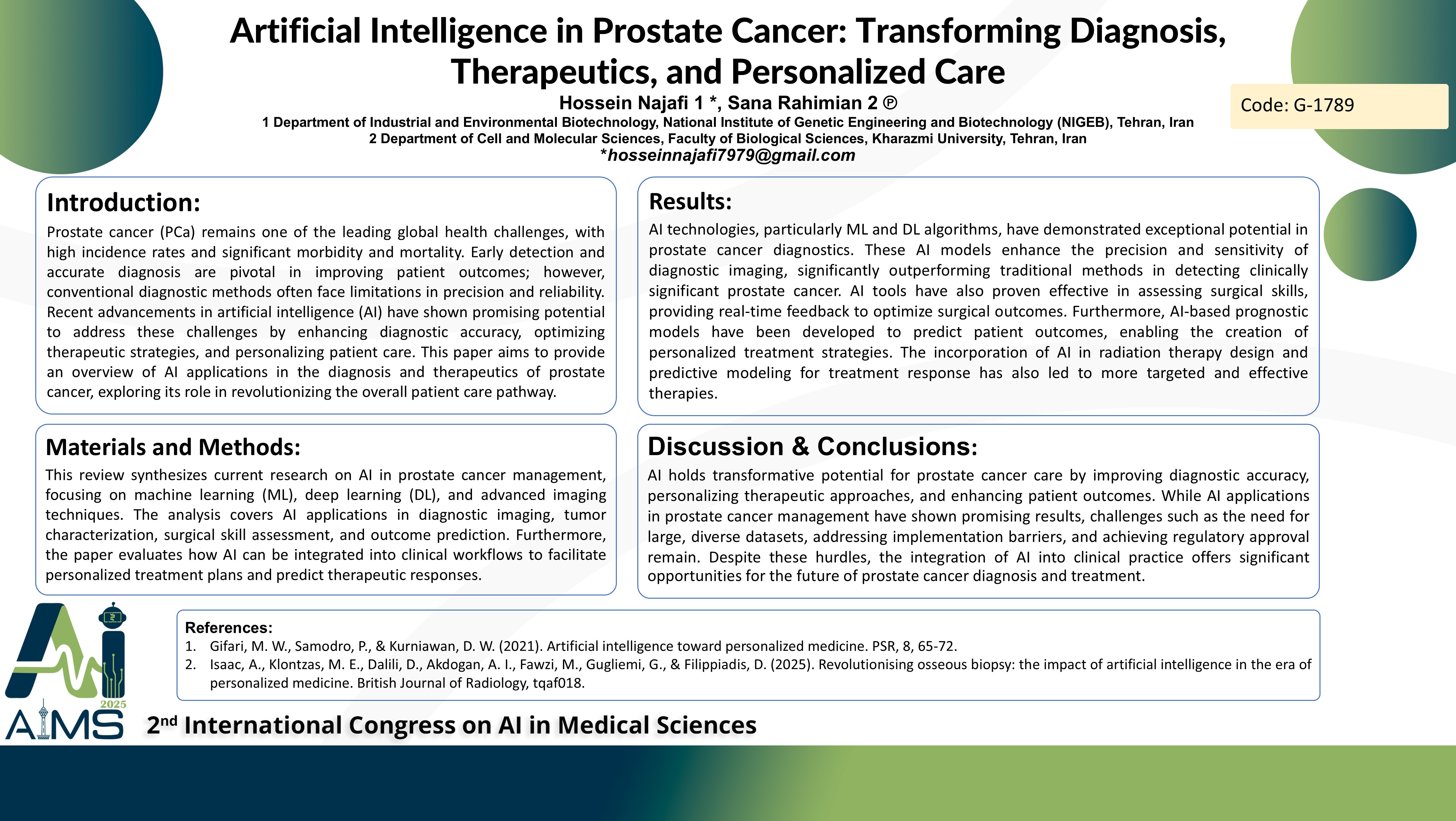هوش مصنوعی در سرطان پروستات: تحول در تشخیص، درمان و مراقبت شخصیسازیشده
کد: G-1789
نویسندگان: Hossein Najafi *, Sana Rahimian ℗
زمان بندی: زمان بندی نشده!
برچسب: تشخیص و درمان سرطان
دانلود: دانلود پوستر
خلاصه مقاله:
خلاصه مقاله
Background and Aims: Prostate cancer (PCa) remains one of the leading global health challenges, with high incidence rates and significant morbidity and mortality. Early detection and accurate diagnosis are pivotal in improving patient outcomes; however, conventional diagnostic methods often face limitations in precision and reliability. Recent advancements in artificial intelligence (AI) have shown promising potential to address these challenges by enhancing diagnostic accuracy, optimizing therapeutic strategies, and personalizing patient care. This paper aims to provide an overview of AI applications in the diagnosis and therapeutics of prostate cancer, exploring its role in revolutionizing the overall patient care pathway. Methods: This review synthesizes current research on AI in prostate cancer management, focusing on machine learning (ML), deep learning (DL), and advanced imaging techniques. The analysis covers AI applications in diagnostic imaging, tumor characterization, surgical skill assessment, and outcome prediction. Furthermore, the paper evaluates how AI can be integrated into clinical workflows to facilitate personalized treatment plans, assist in risk stratification, and predict therapeutic responses. Emphasis is placed on recent advances in AI-driven biomarkers and clinically-integrated decision-making models. Results: AI technologies, particularly ML and DL algorithms, have demonstrated exceptional potential in prostate cancer diagnostics. These AI models enhance the precision and sensitivity of diagnostic imaging, significantly outperforming traditional methods in detecting clinically significant prostate cancer. AI tools have also proven effective in assessing surgical skills, providing real-time feedback to optimize surgical outcomes. Furthermore, AI-based prognostic models have been developed to predict patient outcomes, enabling the creation of personalized treatment strategies. The incorporation of AI in radiation therapy design and predictive modeling for treatment response has also led to more targeted and effective therapies. Conclusion: AI holds transformative potential for prostate cancer care by improving diagnostic accuracy, personalizing therapeutic approaches, and enhancing patient outcomes. While AI applications in prostate cancer management have shown promising results, challenges such as the need for large, diverse datasets, addressing implementation barriers, and achieving regulatory approval remain. Despite these hurdles, the integration of AI into clinical practice offers significant opportunities for the future of prostate cancer diagnosis and treatment.
کلمات کلیدی
Prostate Cancer, Artificial Intelligence, Personalized Medicine
